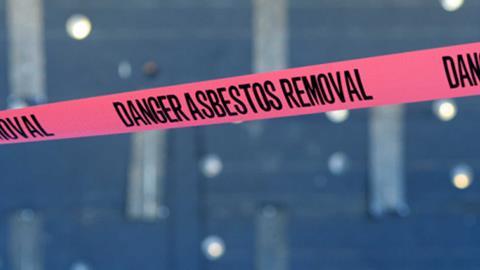On 15 July 2021, the Committee on the Environment, Public Health and Food Safety issued an opinion for the Committee on Employment and Social Affairs with recommendations to the European Commission on protecting workers from asbestos on the grounds that 'asbestos remains one of the most significant occupational health challenges and that 125 million people worldwide have been exposed to asbestos in the workplace' and that 'approximately 250,000 people die each year as a result of asbestos exposure'.

Whilst bearing in mind that '16 European countries still use asbestos, particularly as a building material, and continue to produce and export it', the Committee published numerous recommendations, including the following:
1. '[Consider] the urgent need for an effective access to justice and redress for all health damage, not only that relating to anxiety, for all asbestos victims';
2. '[underline] that all medical costs related to asbestos exposure should be covered by the employers when they have failed to take all appropriate measures and to make efforts within their means to prevent asbestos exposure';
3. '[call] on the Commission to assess the possible need for legislation establishing a general liability regime for diffuse pollution to provide compensation to victims for all damages from diffuse pollution, including that caused by asbestos'.
These recommendations are a clear push to implement, in all member states, a legal regime that facilitates the compensation of plaintiffs.
While this is a well-intentioned goal, what has happened in France, which is at the forefront of the compensation of the anxiety damage, shows the limitations of such an approach and even the dangers of having many businesses shut down.
The anxiety damage refers to the anxiety to develop a disease in the future because of exposure to a hazardous substance. In France, this 'fear of cancer' was recognised by the Supreme Court in decisions dated 11 May 2010 (no. 09-42.241 to 09-42.257). Since these decisions, the Supreme Court has created a legal regime which goes against all principles of French civil liability as it makes the compensation of the plaintiffs automatic in most cases.
Indeed, the French government has created a list of sites having used asbestos in France for the purpose of determining who can benefit from early retirement because of such an exposure. This list contains more than 800 sites, the main criteria for being listed being that between 5 to 15% of workers have been exposed to asbestos. Based on the existence of this list, the French Supreme Court ruled that each worker of these sites should be compensated as they benefit from a legal triple presumption that they are anxious, that their employer did not comply with asbestos-related obligations and of a causal link. In fact, the Supreme Court considered that the mere belief that there was asbestos on a site, even if there was no exposure, is sufficient to develop anxiety. The legal regime became so favourable to workers that the Supreme Court even considered that they did not have to bring medical evidence to prove their anxiety.
Many companies have encountered great difficulties in paying the damages they have been condemned to by plaintiffs which number was significant (as, thankfully, there are more employees who are not sick than ones who have developed a disease). The result is that a significant number of them have filed for bankruptcy.
In other words, if employees can feel anxious to develop a disease in the future, case law that neglects civil liability principles can backfire with the companies that are targeted by such claims being in danger, with the consequence of no one being compensated in the end.
In its opinion, the Committee highlights some health issues that it would like the Commission to monitor, such as the effect of asbestos on the environment (wildlife and vegetation), on children and in the water. Based on the sensitivity of such potential exposures, if science confirms such health and environmental risks, massive litigation will be initiated, and companies will be requested to take numerous steps to contain these risks.
The question is therefore how to find balance? It was hoped that the French Supreme Court would learn from the above experience, with former Presiding Judge of the Social Chamber admitting that the consequences of its case law became excessive and the number of plaintiffs uncontrollable. However, the change in judges triggered new case law, extending the anxiety damage in France.
On 5 April 2019, the Supreme Court extended the anxiety damage to all employees of all sites operating in France, irrespective of whether they are listed (no. 18-17.442). On 11 September 2019, it ruled that the loss relating to anxiety could be claimed by any worker exposed to a 'harmful or toxic substance' (nos. 17-24.879 to 17-25.623). At the same time, the loss relating to anxiety was also recognised in the scope of litigation involving health products, i.e., in a scope other than the employer/employee relationship. Its application further appeared in environmental, consumer, industrial accident and loss or misappropriation of personal data cases. It has even given rise to the concept of 'eco-anxiety', namely anxiety related to climate change.
It goes without saying that, because of this case law, the number of potential plaintiffs is extremely significant, and one can wonder how companies will be able to handle these claims in the future. This raises the question of the member states’ liability. In France, even if the French state was found liable for not implementing stringent regulation against asbestos, it is not the one condemned to damages, but rather companies for having used a substance while it was legal.
We can therefore hope that the European Commission will work on a balanced liability approach to ensure both compensation when the damage and the fault of the company are specifically demonstrated, and the protection of companies against massive waves of non-circumstanced claims. Member states’ liability should also be assessed.
Sylvie Gallage-Alwis is a partner at Signature Litigation
































No comments yet